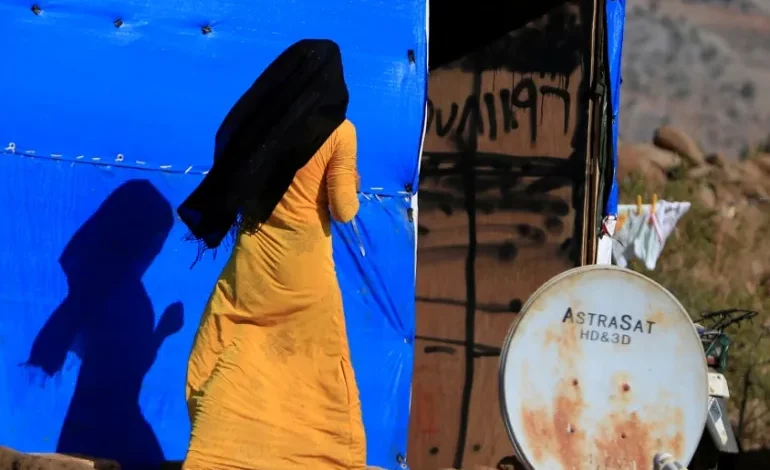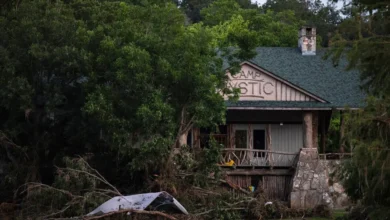As war looms over Lebanon, refugees wonder how they will survive

In 2014, the Syrian regime fired a missile that struck Alaa’s apartment building in Aleppo, Syria. Thirteen-year-old Alaa and his family – mother, father and two sisters – survived the blast and fled to Lebanon.
Today, Alaa is a hairdresser in Beirut and worries about having to go through another war as tensions rise between the Lebanese group Hezbollah and Israel.
“A war would affect everyone here: Lebanese and Syrian,” Alaa told Al Jazeera outside a barbershop in Hamra, a bustling neighbourhood in West Beirut. “If it happens, it happens. I live day by day.”
Alaa is one of millions of refugees and migrants who have found a haven in Lebanon, far from their war-torn homelands. Most keep a low profile and try to eke out a meagre living.
Several Syrian and Sudanese nationals told Al Jazeera they are aware that Lebanon could soon be the theatre of a wider conflict between Israel and Hezbollah.
But while many seem resigned about the future. others worry that, as refugees, they will have fewer opportunities to find safety compared with Lebanese nationals and migrant workers from other countries.
“I wouldn’t return to Syria [where there is still conflict] if a big war happened here,” Alaa told Al Jazeera. “I would first try to go to the mountains, where my parents are.”
‘Nobody to rely on’
Regional tensions escalated after Israel assassinated senior Hezbollah commander Fuad Shakr on July 30 in Dahiya, a bustling residential neighbourhood in Beirut.
Hours later, Hamas’s political leader Ismail Haniyeh was killed in Iran’s capital Tehran, where he was attending President Masoud Pezeshkian’s inauguration.
Israel neither denied nor claimed responsibility for the assassinations, but United States officials and Iran said Israel was behind the attacks.
The assassinations cast a dark cloud over Lebanon and its inhabitants, including the Syrians and Sudanese nationals seeking refuge there. Since then, Israel has stepped up airstrikes on southern Lebanon, leading to a spike in civilian causalities.
Most recently, on August 17, an Israeli airstrike killed ten Syrians and injured a Sudanese citizen in Nabatiyeh, a town in south Lebanon.
Bakhri Yousef, a 28-year-old Sudanese national, worries that the war may soon reach Beirut. Since 2017, he has worked as a cleaner so he can send his family a couple of hundred dollars a month via an informal money transfer system. They need this money to survive, he says, and it is the only reason he stays in Lebanon.
His family lives precariously in el-Obeid, Sudan, a city controlled by the Sudanese army but under siege by the Rapid Support Forces (RSF) paramilitary as the two sides engage in a war to control the country.
“If the situation got really bad here, then I would rather go home,” Bakhri said. “Here in Lebanon, I have nobody to rely on. But in Sudan, I can rely on my family and they can rely on me.”
Shared enemy
Most Syrians who spoke to Al Jazeera said they would not return to their country even if Lebanon spirals into conflict.
Many are afraid of being conscripted into the Syrian army to fight on the front lines of a civil war that erupted in 2012, after the government violently suppressed peaceful protests.
While the world’s attention has moved on from Syria, that has not made it safer. Many Syrians say they are wanted by the regime for their real or perceived opposition to President Bashar al-Assad.
Mohamad, 33, who owns a small laundromat in Beirut, told Al Jazeera he cannot imagine leaving Lebanon after rebuilding his life here.










